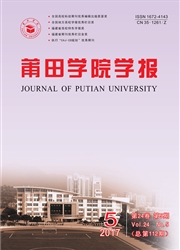
欢迎您!东篱公司
退出

 中文摘要:
中文摘要:
聚焦仪式经济及妈祖信仰遗产化中祭典仪式的道德意涵。通过对2012年莆田港里村的妈祖回娘家祭仪形式与内容的描述,探讨其正在发生变化的文化秩序。认为该祭仪为信仰活动与遗产实践相交织的混合体。最后探讨在地方层面为了发展而要获得物质性或象征性资源的策略中祭仪的品牌效应。
 英文摘要:
英文摘要:
This article focuses on the ritual economy and moral implications of ceremonies in the heritagization of Mazu belief. The case analyzed in this article is the 2012 Mazu Homecoming Ceremony in Gangli Village in Putian. Through describing the rituals and practices of this ceremony, this article explores the changing cultural orders of this religious practice. It analyzes this ceremony as a complex of religious activities and heritagizated practices. It also discusses the branding effects of the ceremonies in the local strategy to acquire material or symbolic resources for local development.
 同期刊论文项目
同期刊论文项目
 同项目期刊论文
同项目期刊论文
 期刊信息
期刊信息
